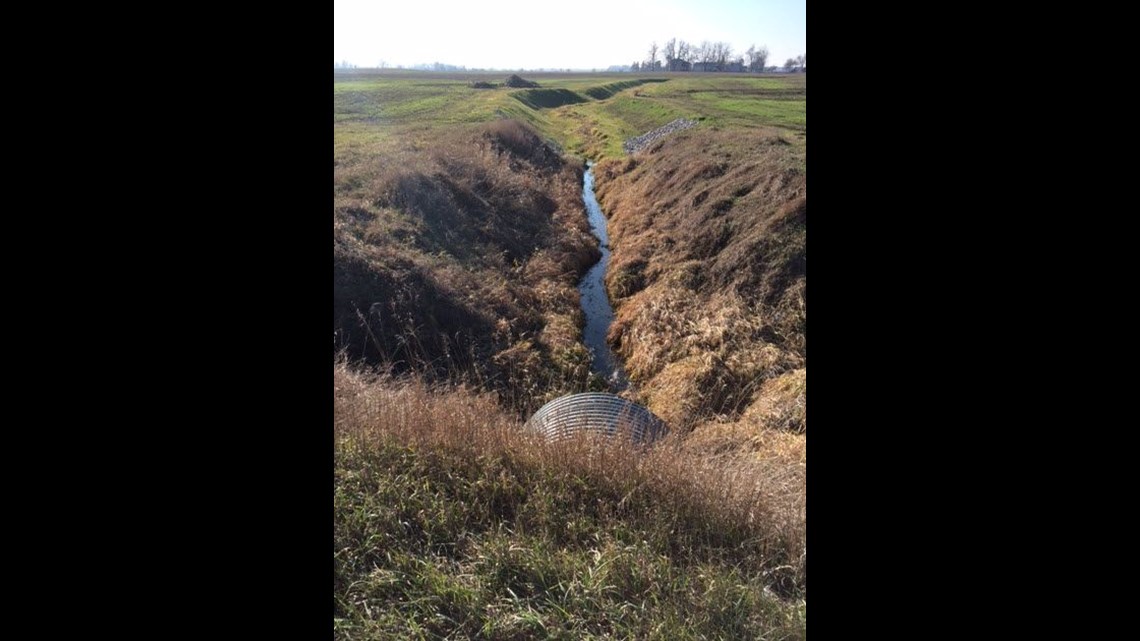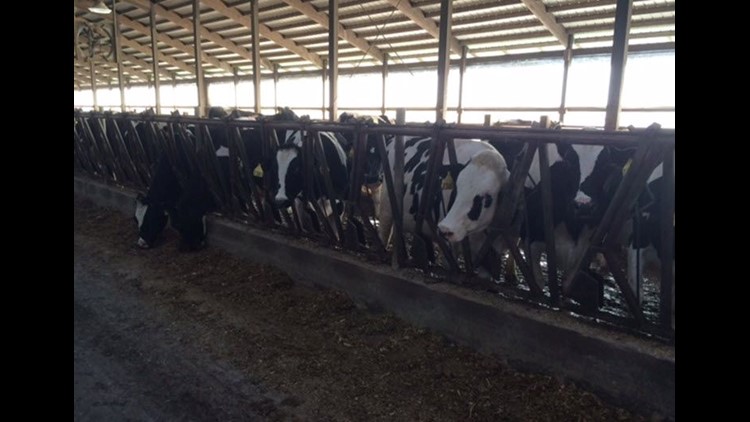

LENAWEE COUNTY, MI (WTOL) - Winter is a quiet time of year for algae in Lake Erie, but a battle is getting louder between environmental groups and farmers. A new report claims that so-called factory farms are helping cause the algae crisis.
Concentrated Animal Feeding Operations (CAFOs), or factory farms, have drawn the criticism of the Sierra Club of Michigan.
Pam Taylor of the Environmentally Concerned Citizens of South Central Michigan and Lynn Henning of the Socially Responsible Agricultural Project contributed to a report supported by the Sierra Club, by the Less=More Coalition.
Called "Follow the Manure," the report claims local CAFOs aren't handling animal waste responsibly, causing algae-causing phosphorous to get into the watershed to threaten the drinking water supply
to hundreds of thousands of people.
"I grew up in Lenawee County. I've grown up near farmers, and now there's 168 chemicals in and around manure and we're not treating it as waste like a sewage treatment plant," said Henning.
Henning's farm is in Clayton, right across the street from Hartland Farms, one of 13 in southeast Michigan the report says is contaminating the watershed. There are other farms in Clayton as well as in Adrian, Morenci and Hudson.
The report also names 22 farms in northwest Ohio: in Wauseon, Napoleon, Bryan, Weston and Wayne.
The report features an interactive map that shows each farm, the number of animals, and alleged violations for waste discharge.
"We've heard over the past, 'We just don't know where these farms are, we don't know how many animals are in them.' We took the best information available," Taylor said.
"There are over 4,000 violations there and it's actual proof that the waste is getting into the waterways," Henning added.
According to the report, farms on the list are still receiving taxpayer funds, despite rising levels of phosphorous in the watershed.
The report is not being well-received by the farms that are listed, including the Bakerlads Dairy Farm in Clayton. Blaine Baker says no one likes a target on their back, but that's what's happening with the manure report.
Bakerlads Farms has nearly 500 cows that they keep in two large barns.
"We live right on the farm, right next door to the cows," Baker said. "We're drinking out of the same well the cows are drinking out of, so we certainly don't want to pollute our well, let alone the neighbors'."
Baker showed WTOL how they're protecting the watershed from animal discharges. In the barns, manure is cleaned up when the cows are moved to the milking parlor. The manure is then stored in a huge, concrete-lined storage pit until the right time to fertilize the fields.
The milking parlor itself has its own water handling system, and winter cover crops were planted on every acre to reduce runoff.
In August, they had a two-stage ditch built on the farm. If water flows out of the channel, it hits "benches" of land on both sides, which absorb nutrients like phosphorous.
They also developed a wetland area that stores water and also absorbs nutrients.
The Michigan Farm Bureau says there has been a dramatic reduction in discharge violations in CAFOs and says "Follow the Manure" is an unfair report.
"Farmers here in Michigan, they absolutely realize that we live in the Great Lakes states, that we have those incredibly important water resources to watch out for," said Laura Campbell of the Michigan Farm Bureau.
"I don't know if they would like to see animal agriculture eliminated? I tend to, in my mind, that is, [think] that would be their goal," said Kim Baker, of Bakerlads Farm.
The Michigan Department of Environmental Quality said the state's permitting program for CAFOs has been very successful at regulating large farms. The Michigan Department of Agriculture said the report includes "bad actors" who are no longer in the farming business.
The Ohio Department of Agriculture said the report talks about a number of items Ohio already has in place, like robust standards, experienced livestock environmental inspectors, and a regulatory system.
Supporters of the report, however, hope it helps get Lake Erie declared a "distressed watershed."
Taylor, who helped put the report together, is skeptical, but said she hopes the Bakerlads Farm and others like it are finally making positive changes on water pollution.



